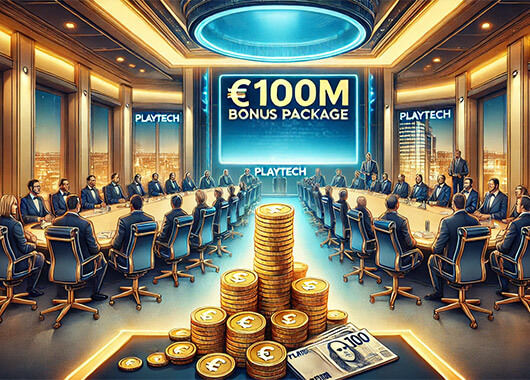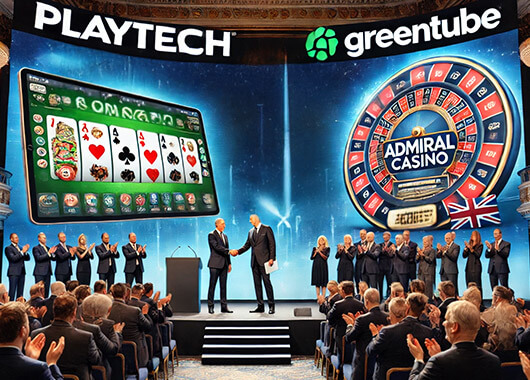
Playtech Shareholders Back €100M Bonus Despite Opposition
Playtech’s shareholders have chosen to endorse a highly contested €100 million executive bonus plan, despite facing significant resistance from some investors. The vote, which took place at the company’s general meeting on December 19, saw the proposal pass with 67% approval, while 33% of shareholders opposed the move. The decision grants approval for the Shareholder Incentive Plan (Directors), designed to reward key executives following the completion of Playtech’s €2.3 billion sale of its Snaitech division to Flutter, announced earlier in September.
While a substantial portion of the shareholder base voiced concerns about the plan, Playtech’s governance rules stipulated that only a simple majority—50%—was required for the proposal’s approval. The result of the vote was thus a decisive one, though it still reflected notable dissent within the investor community.
The Plan and Shareholder Reactions
In response to the vote, a Playtech representative remarked to The Times, expressing gratitude for the shareholder engagement during the general meeting. “We value the views of all our shareholders and are grateful for their involvement leading up to the meeting,” the spokesperson said. “While we are pleased that all resolutions were passed, we acknowledge the level of opposition, and, as always, we will continue to engage with our shareholders.”
Under the incentive plan, Playtech has pledged to allocate the majority of the proceeds from the sale to its shareholders, with an estimated distribution of between €1.7 billion and €1.8 billion. However, the contentious bonus payout to executives has overshadowed this positive outcome for many investors.
When Playtech unveiled the bonus structure, it revealed that the proposal had been driven by a group of Asia-based shareholders who collectively hold 34.4% of the company’s total capital. This move has raised eyebrows, particularly in the context of the company’s governance and shareholder expectations.
Opposition from Key Shareholders
The announcement of the bonus package triggered strong opposition from some influential shareholders, most notably Jeremy Raper, the CEO of Raper Capital, and Peter Smith, the managing partner of Palm Harbour Capital LLP. Both voiced their discontent with the proposed payouts, which they argued were disproportionate and detrimental to shareholder interests.
In an open letter, Raper expressed his dissatisfaction, stating: “The plans, as structured, would constitute the most egregious case of shareholder value expropriation in the history of UK public markets. The plans exemplify crony capitalism at its absolute worst, and represents exactly the type of outcome the Governance Code was created to prevent.”
Despite their vocal opposition, both Raper Capital and Palm Harbour Capital hold relatively minor stakes in Playtech, with their combined influence unable to block the proposal under the rules of the meeting. Sources indicate that, while the opposition was loud, the dissenting votes were not enough to derail the bonus package.
Playtech spokesperson made clear that the company’s stance on shareholder communication remained one of openness, despite the controversy surrounding the executive bonus. “It is our policy not to comment on our conversations with individual shareholders,” the spokesperson said. “Playtech actively and continuously engages with its shareholders in private, and strongly believes that this is the most constructive way to engage.”
Though the approval of the €100 million bonus package marks a significant chapter for Playtech, the issue of shareholder dissatisfaction is unlikely to disappear quietly. With a sizeable minority of investors expressing opposition, the company will likely face continued scrutiny regarding its executive compensation and governance practices moving forward.
Source:
”Playtech shareholders back controversial €100m bonus package”, next.io, December 20, 2024.







